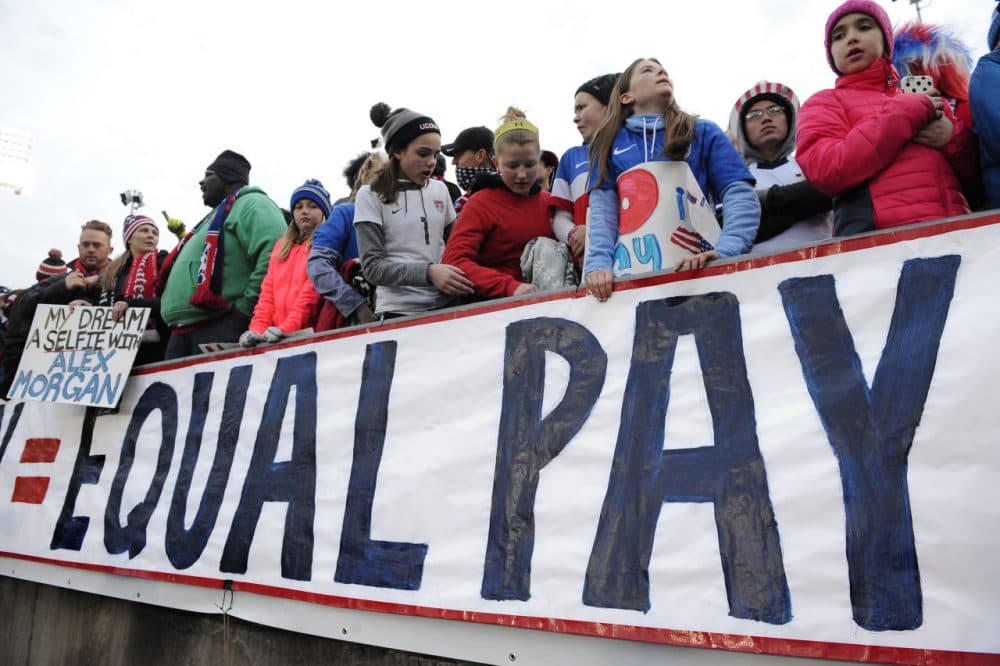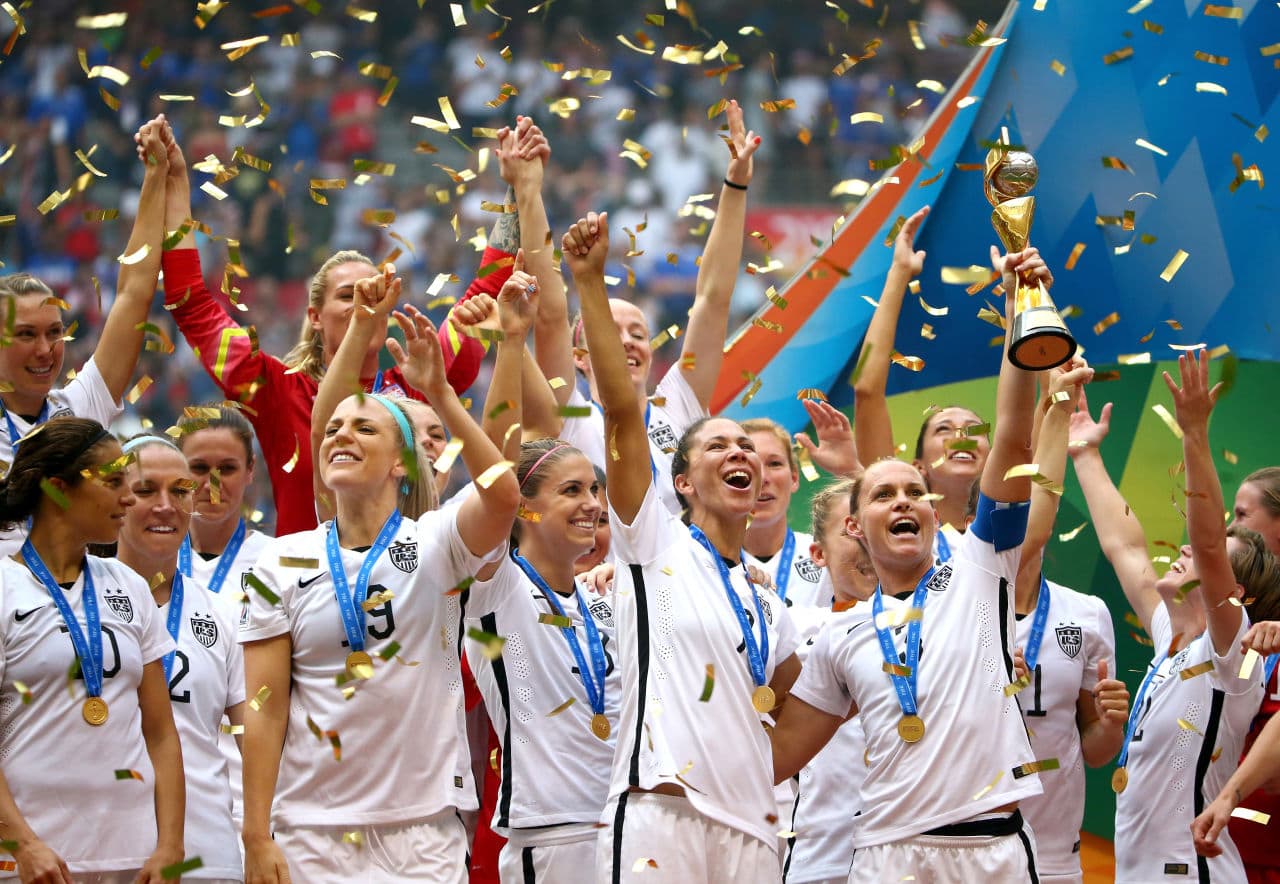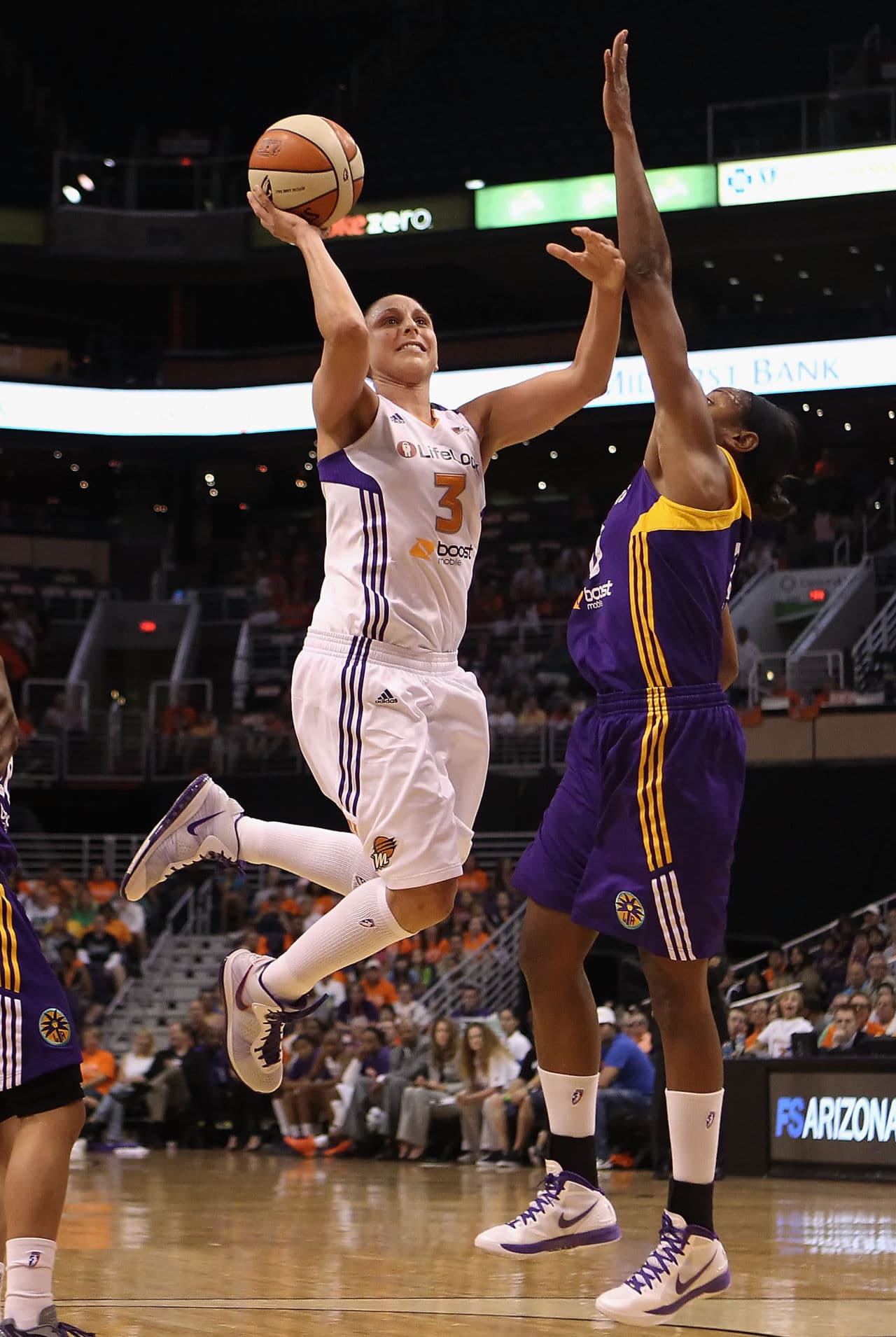Advertisement
No Matter The Sport, Women Athletes Are Always Paid Less
Resume
Those who need reminding that women generally get paid less than men for doing the same work got it on Tuesday. April 12 is now known as Equal Pay Day — the day when — on average — women have finally earned as much as men did by Dec. 31.
The occasion led Ben Rothenberg, a contributing writer to The New York Times, to consider the first time men and women got paid the same amount of money to win a major tennis tournament. It was at the US Open in 1973, but it wasn't the tournament's idea.
If the players are not willing to walk away, they cannot change their wages.
Dave Berri, Southern Utah University economics professor
"Billie Jean King made a comment that the unequal pay situation stinks, quote-unquote," says Rothenberg. "And the deodorant company Ban deodorant stepped in, offered equal pay and eventually the — the rest of the majors didn't follow until much later."
Eventually, one by one, not without backsliding, the four major tournaments came to offer equal prize money to both genders. But, more than 40 years later, that policy still hasn’t trickled down to the smaller events, like Ohio's Western & Southern Open.
"It’s 68 cents on the dollar," Rothenberg says about the tournament's pay to women, "and for the champions right now, Roger Federer makes, I believe, over $700,000 and Serena Williams makes about $450,000."
Which is about as equal as things get in professional sports, as it turns out.
Women's Soccer: Early Retirements And Undervalue
"Jazmine Reeves, who played for the Boston Breakers in 2014, had what I would call a breakout rookie year," says SB Nation's Stephanie Yang. "And then, after 2014, she quit and took a job at Amazon."
Yang says Reeves, and many other young female soccer players who've decided to change jobs, might have risen through the ranks if she’d been able to afford the ride.
"Based on her performance in that first season," Yang says, "she could have been a breakout star in the league and might have earned herself an invitation into national team camp had she continued."
OK, but even if she’d made the national team, Reeves would have found that she and her teammates were being underpaid compared to the men playing the same game....so much so that the women's national team is currently suing U.S. Soccer for more money.
"The largest part of the problem is that FIFA is a profoundly sexist organization," says Smith College economist Andrew Zimbalist. "They reward men at about a rate of 30-1, vis-a-vis the women. The women in the United States are generating more money than the men are, and the women deserve to be paid at least equal, if not more, than the men are paid, as long as that experience continues."

Undervalued...To No Value
Undervaluing the labor of women compared to that of men is bad, but failing to value the efforts of the women at all is worse. While the men’s basketball teams playing in the NCAA Tournament earn their conferences about $1.6 million per victory, the women’s teams earn their conferences…nothing.
"I guess one could make the argument that you should pay the women considerably less, because the women’s television contract is smaller and because there’s fewer people who attend the women’s games," Zimbalist says. "I don't think you should make that argument because it's a commercial — not an educational argument — but even if you could make that argument, they shouldn’t be getting nothing."
And yet nothing is what the universities and conferences and athletic directors get from the efforts of the women’s teams. And of course the players get nothing, no matter their gender, which is perhaps the only way in which the male and female basketball players are treated equally.

This is not the case when the women graduate to the WNBA. There, they discover that collectively, they’ll be paid a little less than a third of the revenue the league generates. The men in the NBA are paid half.
I know what you're thinking. The WNBA is struggling, right? It would collapse without the support of the NBA, and it can't afford to pay the players more. Not so, says Dave Berri, economics professor at Southern Utah University.
"Their attendance is about 7,500 per game," Berri says. "That is very comparable to what the NBA was doing 20 years into its existence. In fact, the NBA was not doing that well 20 years into its existence. So this is a viable business."
A Historical Trend
Berri has a theory for how the WNBA — and other women's sports — are getting away with it.
"Until very recently in most sports," he says, "women have not gone on strike or threatened to go on strike."
And this is where the story comes back to Billie Jean King, because when she fought for — and won — equal pay at the US Open in 1973, she didn't just say, "pretty, please."
"She got wages changed by just threatening not to play anymore," Berri says. "And that really is the story of sports. And we’ve seen this throughout the history of sports. If the players are not willing to walk away, they cannot change their wages."
Berri points out that Major League Baseball players were underpaid until, behind Marvin Miller, they built the strongest union in sports. Organizing and negotiating prompted that viable business to pay its workers appropriately, but according to Berri, this won’t happen in the WNBA until the women call their employer’s bluff.
"The WNBA, the league, tells them that they are paying them the best they can, and that is exactly the same story that sports owners have told athletes since the 19th century," Berri says.
The danger in this sort of analysis is that it might sound like blaming the victim: the fault is not with the employers, who are only doing what employers do, which is keeping expenses low in order to keep profits high. Still, what if Berri is right, and what if female basketball players and soccer players and tennis players all decide that he is? Wouldn’t that make for an exciting next few years for women’s sports?
This segment aired on April 16, 2016.
